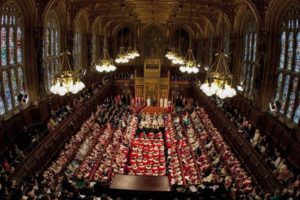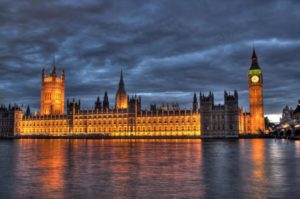
 Gender Issues Are a National Problem, Not Just a Muslim Problem: A Response to Baroness Cox’s Statement Guest contributor Hadeer Soliman counters Baroness Cox’s statement proposing Amendment 219(C) to the Policing and Crime Bill. “Baroness Cox, a cross-bench member of the UK House of Lords, recently proposed Amendment 219(C) to the Policing and Crime Bill, which would require celebrants of religious marriages to take all reasonable steps to ensure that the marriage complies with the marriage laws of England and Wales. The Amendment attaches criminal sanctions of up to three years of imprisonment for the failure to comply. Although the law does not specify a religious group, Cox said in her statement proposing the Amendment that it has “specific relevance for Muslim women who are adversely affected by the discriminatory rulings of many Sharia councils.” In her statement, Cox said that she was motivated by “deep concern” for women. Despite her claims that the amendment does not subscribe to anti-Muslim or anti-Islam sentiment, Cox’s proposal raises concerns about the way public officials approach and understand Islamic law and customs. Cox’s statement does not address how this amendment would solve the problem of unregistered marriages, given that the current language of the existing Marriage Act of 1949 already recognizes marriages only if they are solemnized by authorized individuals, marriages solemnized under the Church of England, practices of the Quakers or of the Jewish faith, or marriages that take place in a registered building.” Read more. Image credit: Getty Images
Gender Issues Are a National Problem, Not Just a Muslim Problem: A Response to Baroness Cox’s Statement Guest contributor Hadeer Soliman counters Baroness Cox’s statement proposing Amendment 219(C) to the Policing and Crime Bill. “Baroness Cox, a cross-bench member of the UK House of Lords, recently proposed Amendment 219(C) to the Policing and Crime Bill, which would require celebrants of religious marriages to take all reasonable steps to ensure that the marriage complies with the marriage laws of England and Wales. The Amendment attaches criminal sanctions of up to three years of imprisonment for the failure to comply. Although the law does not specify a religious group, Cox said in her statement proposing the Amendment that it has “specific relevance for Muslim women who are adversely affected by the discriminatory rulings of many Sharia councils.” In her statement, Cox said that she was motivated by “deep concern” for women. Despite her claims that the amendment does not subscribe to anti-Muslim or anti-Islam sentiment, Cox’s proposal raises concerns about the way public officials approach and understand Islamic law and customs. Cox’s statement does not address how this amendment would solve the problem of unregistered marriages, given that the current language of the existing Marriage Act of 1949 already recognizes marriages only if they are solemnized by authorized individuals, marriages solemnized under the Church of England, practices of the Quakers or of the Jewish faith, or marriages that take place in a registered building.” Read more. Image credit: Getty Images
 LEGISLATION :: Arguments on Amendment 219 (C) to the Policing and Crime Bill (UK, 2016) Proposed by MP Baroness Cox, the amendment requires all religious marriages to comply with English and Welsh marriage laws. Read more. Image credit: Creative Commons
LEGISLATION :: Arguments on Amendment 219 (C) to the Policing and Crime Bill (UK, 2016) Proposed by MP Baroness Cox, the amendment requires all religious marriages to comply with English and Welsh marriage laws. Read more. Image credit: Creative Commons
 CASE: Shamin v. Siemens Indus. (N.D.Ill., USA, 2012): Workplace Retaliation Claim In a case of discrimination in the workplace, on the basis of a Muslim plaintiff’s practice of Islamic ritual law, the plaintiff claimed he was unfairly discharged from a hostile work environment a few years ago. He alleged that derogatory comments about his religion and ethnicity were directed at him. These charges were brought against his former employer under Title VII of the Civil Rights Act of 1964. Respondents filed a motion to dismiss, stating the plaintiff’s claims were procedurally barred. Read more. Image credit: J. Scott Applewhite | Star Tribune
CASE: Shamin v. Siemens Indus. (N.D.Ill., USA, 2012): Workplace Retaliation Claim In a case of discrimination in the workplace, on the basis of a Muslim plaintiff’s practice of Islamic ritual law, the plaintiff claimed he was unfairly discharged from a hostile work environment a few years ago. He alleged that derogatory comments about his religion and ethnicity were directed at him. These charges were brought against his former employer under Title VII of the Civil Rights Act of 1964. Respondents filed a motion to dismiss, stating the plaintiff’s claims were procedurally barred. Read more. Image credit: J. Scott Applewhite | Star Tribune
See the full newsletter.

